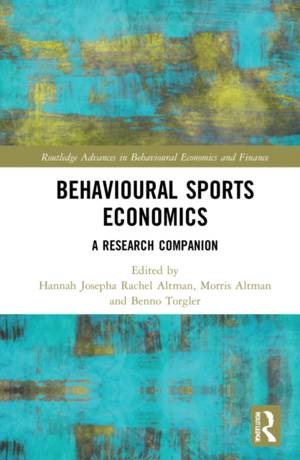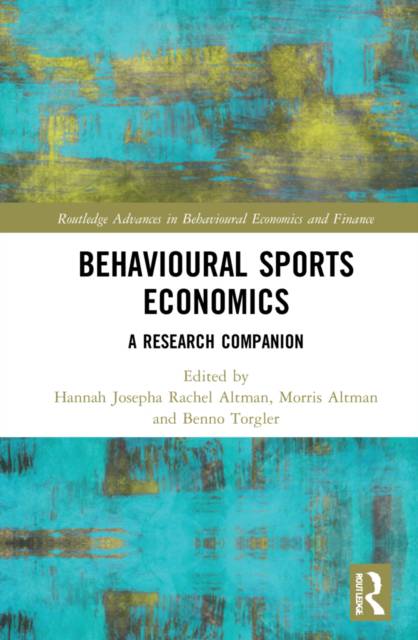
- Afhalen na 1 uur in een winkel met voorraad
- Gratis thuislevering in België vanaf € 30
- Ruim aanbod met 7 miljoen producten
- Afhalen na 1 uur in een winkel met voorraad
- Gratis thuislevering in België vanaf € 30
- Ruim aanbod met 7 miljoen producten
Behavioural Sports Economics
A Research Companion
Omschrijving
Economists have entered into the realm of sports to provide what they believe to be more cogent explanations for sport-related behaviour and to suggest ways in which incentives can improve sports outcomes. But prices and income, the traditional workhorses of conventional economics, can only provide partial explanations and understandings. Drawing on a bounded rationality approach to behavioural economics, this book demonstrates the analytical insights to be gained by supplementing the conventional economics toolbox with psychological, cognitive, sociological, and institutional factors.
The international cast list of contributors cover a wide range of sports topics on which a behavioural approach can reveal new insights. These include preferences, managerial, efficiency, choking, doping, favouritism, athlete well- being, and spectator behaviour. Throughout the book, there is an emphasis on the cognitive limits to smart decision-making as well as the critical role played by the decision-making environment. This volume demonstrates that adopting a bounded rationality approach, complimented with other behaviouralist approaches, helps to better explain sport-related behavioural, sub-optimal behavioural, and market failures. It also provides insights that could be used to improve sports outcomes and the well-being of those involved in sports and to better configure policy to enhance sports performance.
This groundbreaking book will be an indispensable reference to students and scholars of sports economics, sports management, and sports science.
Specificaties
Betrokkenen
- Uitgeverij:
Inhoud
- Aantal bladzijden:
- 358
- Taal:
- Engels
- Reeks:
Eigenschappen
- Productcode (EAN):
- 9780367531843
- Verschijningsdatum:
- 20/12/2021
- Uitvoering:
- Hardcover
- Formaat:
- Genaaid
- Afmetingen:
- 156 mm x 234 mm
- Gewicht:
- 703 g

Alleen bij Standaard Boekhandel
Beoordelingen
We publiceren alleen reviews die voldoen aan de voorwaarden voor reviews. Bekijk onze voorwaarden voor reviews.










